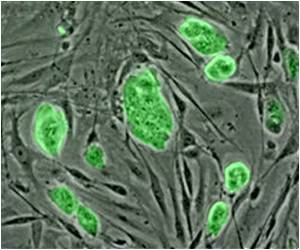Manuka honey could provide the breakthrough treatment for cystic fibrosis patients who suffer from frequent infections.

‘Patients with cystic fibrosis could benefit from the regular consumption of manuka honey, which kills the deadliest antimicrobial-resistant bacteria causing frequent lung infections, preventing the chances of lung transplantation.’
Read More..




CF is one of the UK's most common life-threatening inherited diseases, with around 10,400 people in the UK suffering according to the CF Trust. A government review led by Lord Jim O'Neill also highlighted the threat of antimicrobial resistance, estimating that a continued rise in resistance by 2050 would lead to 10 million people dying every year from antimicrobial resistant infections.Read More..
A problem that CF patients suffer from are chronic and long-lasting respiratory infections which often prove fatal due to the presence of certain bacteria that are resistant to many (if not all) the antibiotics that doctors currently have at their disposal.
Bacteria that cannot be removed from the lungs through antibiotic treatment can, as a last resort, be removed by providing patients with newly transplanted lungs. This has some associated risks, however, as the bacteria that caused the original infection can still be found in the upper airway, and migrate into the new lungs, thus making the transplant ineffective.
Some patients have a worse prognosis as they are infected with deadly types of bacteria, such as Pseudomonas and Burkholderia cepacia complex, which are difficult to kill (due to multiple antibiotic resistance) and cause extensive damage to the lungs. In some instances, merely their presence within a patient can prevent them from receiving life-saving lung transplants.
The effectiveness of antibiotics against these deadly infections is a huge concern, making the need to find suitable, non-toxic alternatives, which are effective at killing the bacteria a top priority.
Advertisement
Dr Rowena Jenkins, Lecturer in Microbiology and Infectious Diseases at Swansea University, said:
"The synergy with antibiotics and absence of resistance seen in the laboratory has allowed us to move into the current clinical trial, investigating the potential for Manuka honey as part of a sinus rinse for alleviating infection in the upper airway."
Source-Eurekalert












